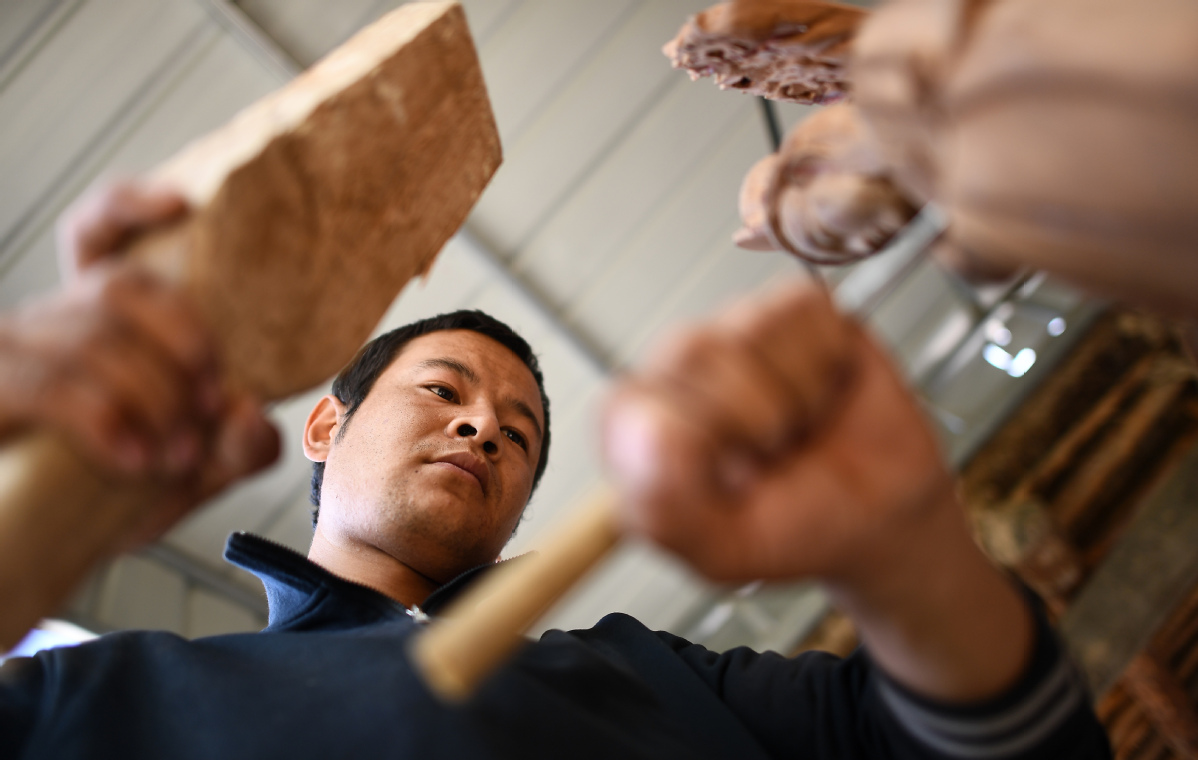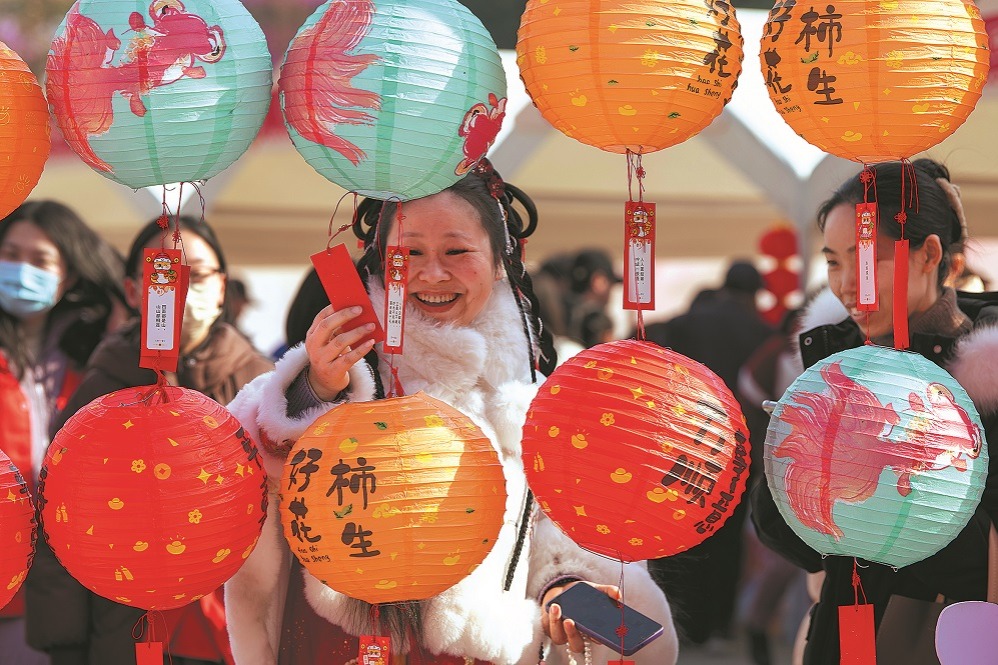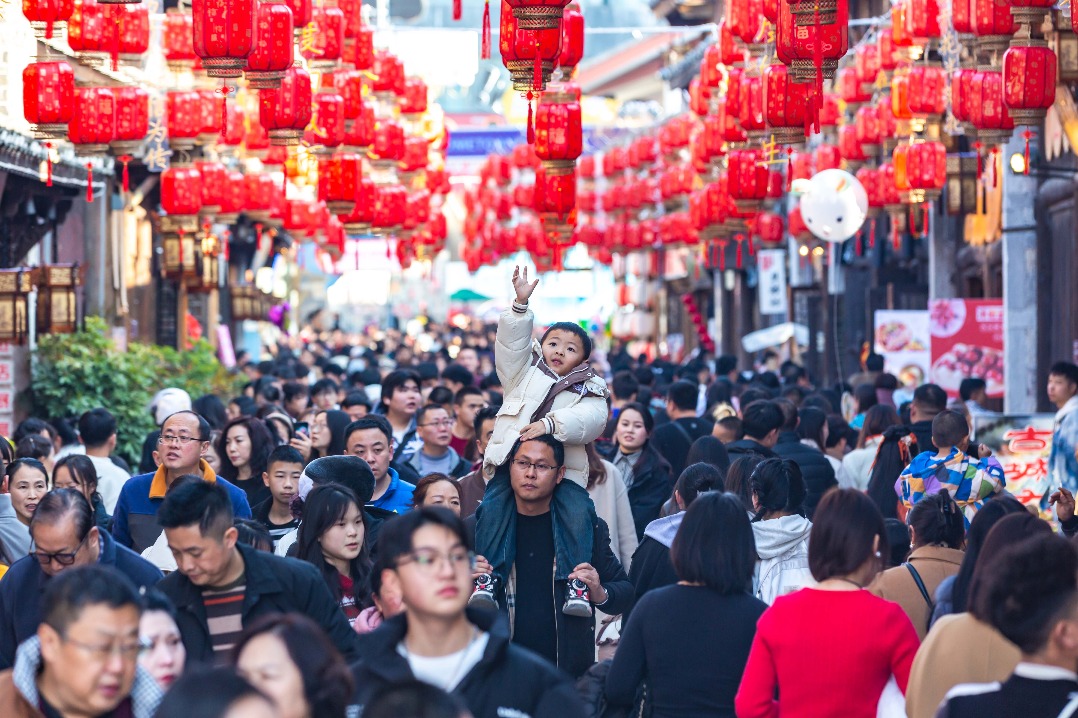Cooperatives and incubators lift living standards


Improved efficiency
In the past, the grassland was contracted to each household piece by piece. Each family lived and grazed its animals far from their peers and rarely moved around the pasture.
"It was a waste of labor because no matter how many yaks a family had, one or 100, someone was always needed to graze them," Jikme Tamdrin said.
"It also increased the environmental pressure on the grassland and made it harder for each family's livestock to survive the winter, because herders could only graze livestock on their own stretch of grassland all year round, so they had nowhere to transfer the animals if they were hit by heavy snow."
The situation has improved since the cooperative began managing the yaks, labor and grassland in a unified manner.
All the small pieces of grassland have been joined together, and the village's entire pasture has been divided into four zones to enable rotational grazing across all four seasons. Fewer people can look after a larger number of livestock and improved animal husbandry has greatly strengthened the ability to resist the impact of natural disasters.
"From November to March, we graze the yaks in the winter pasture; April and May they are in the spring pasture; from June to August we use the summer pasture; and the autumn pasture in September and October. Overgrazing no longer occurs. The grass is more luxuriant than before, so the yaks eat better and become healthier. In the past, the yaks bore calves every three years. Now they give birth every one or two years," Jikme Tamdrin said.
"Some villagers have entrusted all their yaks to the cooperative, and its members take turns herding them. People who don't herd have time to do handicrafts or learn a skill, such as cooking or vehicle repair, to make extra money."
In addition, some seniors and parents have been freed up to move to the county's downtown area, either to live in retirement or take their children to school.
The cooperative also provides supplementary winter feed for the livestock, which helps the animals endure the cold and even severe snowstorms.
"At the turn of 2018-19, Yushu was stricken by once-in-a-decade snowstorms, but we only lost 5 percent of the yaks, basically the usual yearly rate," Jikme Tamdrin said. "Supplementary feeding also makes it possible to milk the yaks in winter and shortens the time for each animal to reach slaughter weight."
When yaks get sick, the cooperative can invite a veterinarian to treat them. Moreover, every animal is insured, so owners can claim compensation if their livestock meets with an accident.
The cooperative takes responsibility for selling yaks, milk, butter and other products, and shares bonuses with members at year's end. From 2017 to 2019, annual profit grew from 360,000 yuan to 482,000 yuan and then 520,000 yuan.
By last year, all 402 households in the village owned a share of the business in various forms by providing cash, labor, livestock or grassland.























